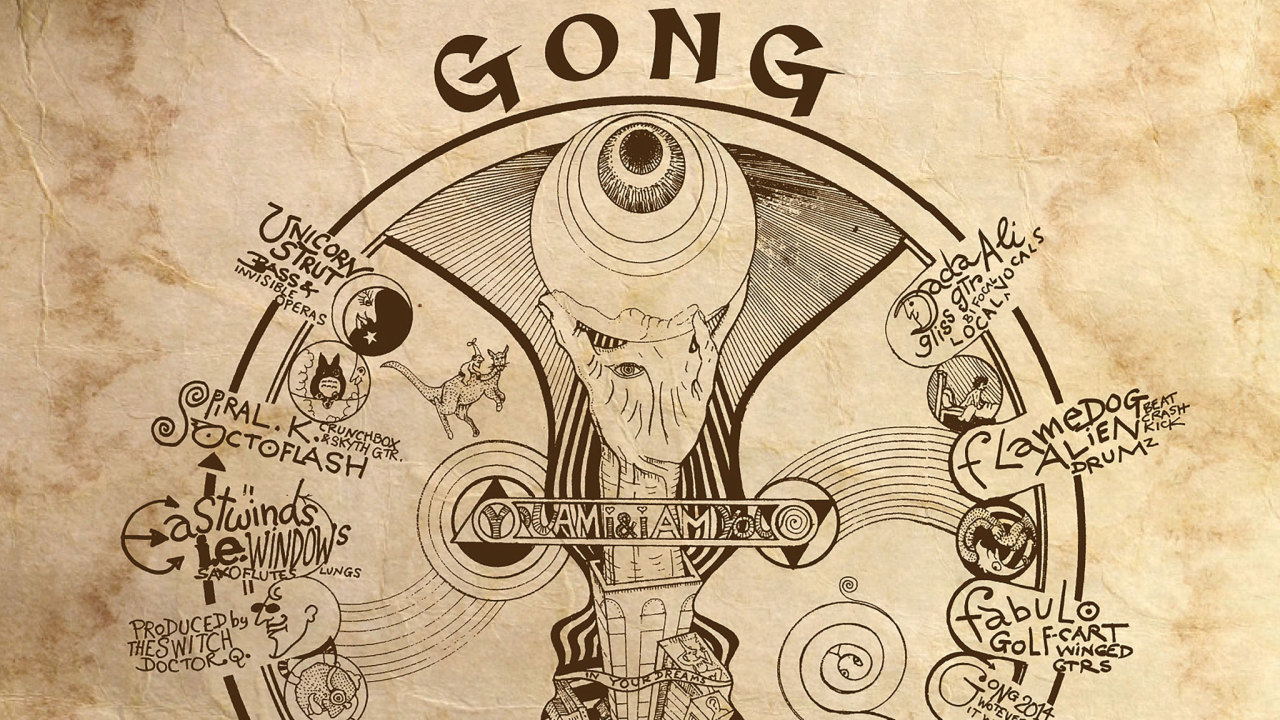You can trust Louder
Even in this era, when musical surprises seem to reside around every corner, Gong stand apart, because they still have a way of blindsiding you in a way that no other band can.
They’ve built their reputation on being completely without fear: anything is possible, and everything is probable. And this explains why they’ve always been part of the prog/psychedelic undergrowth. I See You is yet another example of just why so many find the band infuriating, while a few understand that Gong mastermind Daevid Allen is something of a visionary, albeit one who lives in a seemingly constant state of mental turbulence.
Allen has always been brilliant at achieving that delicate balance between musical discipline and true creativity. At times here, it appears that the band are suddenly let loose, with anarchic results. Yet they are never allowed to completely get lost in a maze of their own ideas – whatever the temptations, somehow Gong retain an inclination to be exotically simple.
You can hear this as the title track opens up influences from Stockhausen, Ligeti and other avant-garde classical composers from the 20th century. This gives the song an iconoclastic resonance that’s distinct from anything else you’ll hear. The band’s ability to take disparate inspirations and use them for their own ends becomes even clearer on Occupy, which nods at Japanese speed metal, and When God Shakes Hands With The Devil, which allows new guitarist Kavus Torabi to bring in his own Cardiacs background.
The whole album has the feel of being conceptual, because the music ebbs and flows as if it were a dysfunctional symphony. This becomes obvious as the lengthy Thank You morphs into the closing Shakti Yoni & Dingo Virgin. The former is Allen’s own message of thanks both to the fans and also the many talents who’ve been part of the Gong tapestry since 1967. Some may view this as a valedictory message. However, it might just be that Allen’s ongoing ill health has made him aware of being thankful to everyone who’s been part of his life and works so far. The latter is eerily philosophical, and allows Allen and long‑time partner Gilli Smyth to show they are still capable of making you think. Smyth’s inimitable space whispering is moving and redolent of an out-of-body experience.
Every Gong album is to be savoured on its own terms, but each one is also part of an interlinked artistic cavalcade. I See You sounds like nothing they’ve ever done, yet connects seamlessly with everything they’ve previously achieved.
Sign up below to get the latest from Prog, plus exclusive special offers, direct to your inbox!
Malcolm Dome had an illustrious and celebrated career which stretched back to working for Record Mirror magazine in the late 70s and Metal Fury in the early 80s before joining Kerrang! at its launch in 1981. His first book, Encyclopedia Metallica, published in 1981, may have been the inspiration for the name of a certain band formed that same year. Dome is also credited with inventing the term "thrash metal" while writing about the Anthrax song Metal Thrashing Mad in 1984. With the launch of Classic Rock magazine in 1998 he became involved with that title, sister magazine Metal Hammer, and was a contributor to Prog magazine since its inception in 2009. He died in 2021.


